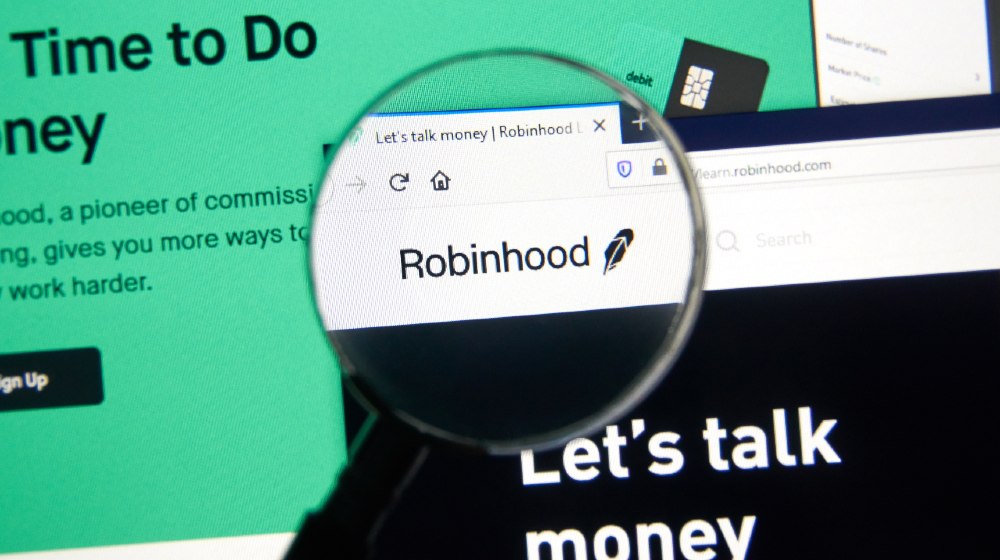Business
Robinhood Misled Clients, Will Pay $65M Fine

The Securities and Exchange Commission concluded that popular trading app Robinhood misled clients. The agency said they deceived customers about how it earns money. At the same time, Robinhood didn't provide the best execution for trades as promised.
RELATED: Billionaire Warns: Robinhood Traders Will End Up ‘In Tears’
Robinhood agreed to pay a $65 million civil penalty. However, it did not admit guilt nor did it deny any wrongdoing. Chief Legal Officer Dan Gallagher said the charges “do not reflect Robinhood today.”
Payment for Order Flow
The SEC issued a statement regarding Robinhood’s transgressions. “Between 2015 and late 2018, Robinhood made misleading statements and omissions in customer communications, including in FAQ pages on its website, about its largest revenue source when describing how it made money — namely, payments from trading firms in exchange for Robinhood sending its customer orders to those firms for execution, also known as ‘payment for order flow,’” the statement said.
“One of Robinhood’s selling points to customers was that trading was ‘commission-free,’ but due in large part to its unusually high payment for order flow rates, Robinhood customers’ orders were executed at prices that were inferior to other brokers’ prices,” it added.
Commission-free Trading
Robinhood pushed the “commission-free trading” model to entice customers. It hoped the absence of this fee will make new traders switch to its apps instead of other platforms. Along with the rest of the industry, Robinhood makes money on payments for order flow. The company's current valuation is $11.7 billion and plans to go public.
Receiving payments for order flow from stockbrokers is completely legal, but controversial. Robinhood earned $180 million in order flow payments in the second quarter. However, the SEC said that Robinhood did not give its clients the “best execution” as promised. Instead, they used inferior trade prices. Instead of savings, these eventually cost customers $34.1 million in fees. This amount of factors in the commission savings.
Misleading Information
Stephanie Avakian, director of the SEC’s Enforcement Division said Robinhood can’t do those things. “Robinhood provided misleading information to customers about the true costs of choosing to trade with the firm,” she said. “Brokerage firms cannot mislead customers about order execution quality,” Avakian added.
Market makers, or companies that engage in both buying and selling of stocks, pay Robinhood and other e-brokers for the right to execute trades. The market maker then receives a small fee for the shares routed their way. They can add up to millions, especially when a flurry of trade activities. This year, Robinhood made a killing, as a record 3 million new customers signed up to the app from January to April.
$65 Million Settlement
By paying a $65 million settlement, the SEC will end their investigation and consider the matter resolved. By resolved, it means that Robinhood neither admitted nor denied the SEC's charges. Gallagher said that the “The settlement relates to historical practices that do not reflect Robinhood today. We recognize the responsibility that comes with having helped millions of investors make their first investments, and we’re committed to continuing to evolve Robinhood as we grow to meet our customers’ needs.”
A company spokesperson added,” We are fully transparent in our communications with customers about our current revenue streams, have significantly improved our best execution processes, and have established relationships with additional market makers to improve execution quality.”
Complaints Piling Up
The SEC investigation began as early as September. The settlement announcement happened just as Massachusetts securities regulators filed a new complaint. Specifically, the suit alleged that Robinhood aggressively sells to rookie investors without adequate controls. Also, Robinhood allegedly used gamification strategies to manipulate clients. Then, it failed to prevent frequent disruptions on its trading app.
Watch the CNBC report where Kate Rooney breaks down the SEC charges on investing app Robinhood, causing them to pay $65 million in penalties:
Do you use Robinhood for your trades? Or, do you generate more profit here compared to other trading platforms? Share with us your Robinhood experience by sharing your stories in the comment section below?















